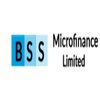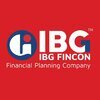Filter interviews by
Moon SEZ Consultants Finance Executive Interview Questions and Answers
Moon SEZ Consultants Finance Executive Interview Experiences
1 interview found
I applied via Recruitment Consulltant and was interviewed before Aug 2022. There were 3 interview rounds.

(1 Question)
- Q1. Basics information
(4 Questions)
- Q1. My information, & work related questions
- Q2. My Qualification
- Q3. My job experience
- Q4. Which want Salary etc
Interview Preparation Tips
Top trending discussions






Interview questions from similar companies

I applied via Referral and was interviewed in Jun 2023. There were 4 interview rounds.

Easy Questions. Just prepare the basics of the Quantitative Aptitude and you would be good to go.
Then came the guesstimate. It was a fairly easy one.
(2 Questions)
- Q1. It was about the previous job experience and projects
- Q2. Tell me something about yourself

I applied via Approached by Company and was interviewed before Jan 2024. There were 2 interview rounds.
Normal aptitude test easy level
(1 Question)
- Q1. Asked about different methods of analysis
Interview Preparation Tips

I appeared for an interview before Feb 2024.
DILR
VERBAL
APTITUDE
QUANT
(3 Questions)
- Q1. Guesstimate was asked
- Q2. About CV
- Q3. Aptitude question
Interview Preparation Tips

I applied via Campus Placement and was interviewed in Jul 2022. There were 3 interview rounds.

Aptitude test was of an hour covered quantitative Aptitude, Reasoning and python multiple choice questions
(2 Questions)
- Q1. The second and Last round was technical round . in this round they asked guesstimate puzzles problems. Question 1. How will you find number of flights up and down in year on a particular airport of your...
- Q2. 1 . How will you find IPHONE users in your campus? 2. Difference between rank and dense rank?
- Ans.
Answering questions related to finding iPhone users on campus and the difference between rank and dense rank.
To find iPhone users on campus, one can conduct a survey or use location-based services to track devices connected to the campus Wi-Fi network.
Rank and dense rank are used in SQL to assign a unique rank to each row in a result set based on a specified column. The difference is that dense rank does not leave gaps...
Interview Preparation Tips

Sales Executive Interview Questions & Answers
Mansukh Securities & Financeposted on 6 Feb 2024
I applied via Naukri.com and was interviewed in Jan 2024. There was 1 interview round.
(1 Question)
- Q1. Read derivatives especially options
Interview Preparation Tips

I applied via Campus Placement and was interviewed before Aug 2020. There was 1 interview round.
Interview Questionnaire
2 Questions
- Q1. Regarding my previous experience.
- Q2. Regarding my background
Interview Preparation Tips

Inroduction of capital market
(1 Question)
- Q1. What is primary & secondary market, types of corporate actions with example
- Ans.
Primary market is where new securities are issued, while secondary market is where existing securities are traded.
Primary market involves the issuance of new securities by companies to raise capital, while secondary market involves the trading of existing securities among investors.
Types of corporate actions include stock splits, dividends, mergers and acquisitions, and spin-offs.
Stock split is when a company increases...

I applied via Company Website and was interviewed before Oct 2022. There were 2 interview rounds.

(4 Questions)
- Q1. What is share market
- Ans.
Share market is a platform where buying and selling of company stocks and securities takes place.
Share market allows companies to raise capital by selling shares to investors
Investors can buy and sell shares to make profits
Prices of shares fluctuate based on supply and demand, company performance, and economic factors
- Q2. Dividend is declared by whom?
- Ans.
Dividends are declared by the board of directors of a company.
Dividends are typically declared by the board of directors of a company.
The board of directors considers various factors such as company performance, financial health, and future growth prospects before declaring dividends.
Shareholders receive dividends as a distribution of profits.
Dividends can be in the form of cash, stock, or property.
Companies may choose...
- Q3. What is equity management?
- Ans.
Equity management involves the strategic allocation and distribution of company ownership to maximize shareholder value.
Involves determining the optimal mix of debt and equity financing for a company
Includes managing the issuance of new shares, buybacks, and dividends
Strategic decisions to ensure fair treatment of shareholders and maximize returns
Examples: IPOs, stock repurchases, dividend policies
- Q4. What are shares?
- Ans.
Shares represent ownership in a company and entitle the holder to a portion of the company's assets and profits.
Shares are units of ownership in a company that are bought and sold on the stock market.
Shareholders have voting rights and may receive dividends based on the company's performance.
Shares can be classified as common stock or preferred stock, each with different rights and benefits.
Interview Preparation Tips


(1 Question)
- Q1. Tell me about yourself
(1 Question)
- Q1. What is capital market
- Ans.
Capital market is a financial market where individuals and institutions trade financial securities.
Capital market is where long-term securities like stocks and bonds are bought and sold.
It helps companies raise capital by issuing stocks or bonds to investors.
Investors can buy and sell securities through stock exchanges like NYSE or NASDAQ.
Capital market plays a crucial role in the economy by facilitating investment and
(1 Question)
- Q1. What is your goal in life
Moon SEZ Consultants Interview FAQs
Tell us how to improve this page.
Interview Questions for Popular Designations
- Financial Analyst Interview Questions
- Finance Manager Interview Questions
- Accounts & Finance Executive Interview Questions
- Accounts & Finance Manager Interview Questions
- Finance Intern Interview Questions
- Assistant Manager Finance Interview Questions
- Senior Executive - Finance Interview Questions
- Financial Associate Interview Questions
- Show more
Moon SEZ Consultants Finance Executive Interview Process
based on 2 interviews
Interview experience
Interview Questions from Similar Companies
|
Exim Executive
16
salaries
| ₹1.5 L/yr - ₹3.5 L/yr |
|
Compliance Executive
11
salaries
| ₹2.4 L/yr - ₹4.5 L/yr |
|
Executive Assistant
10
salaries
| ₹1.6 L/yr - ₹2.4 L/yr |
|
HR Executive
9
salaries
| ₹1.5 L/yr - ₹2.8 L/yr |
|
PHP Developer
9
salaries
| ₹1.4 L/yr - ₹2.4 L/yr |

Karvy Financial Services

Reliance Money

Sonata Finance

Bss Microfinance
- Home >
- Interviews >
- Moon SEZ Consultants Interview Questions >
- Moon SEZ Consultants Finance Executive Interview Questions











